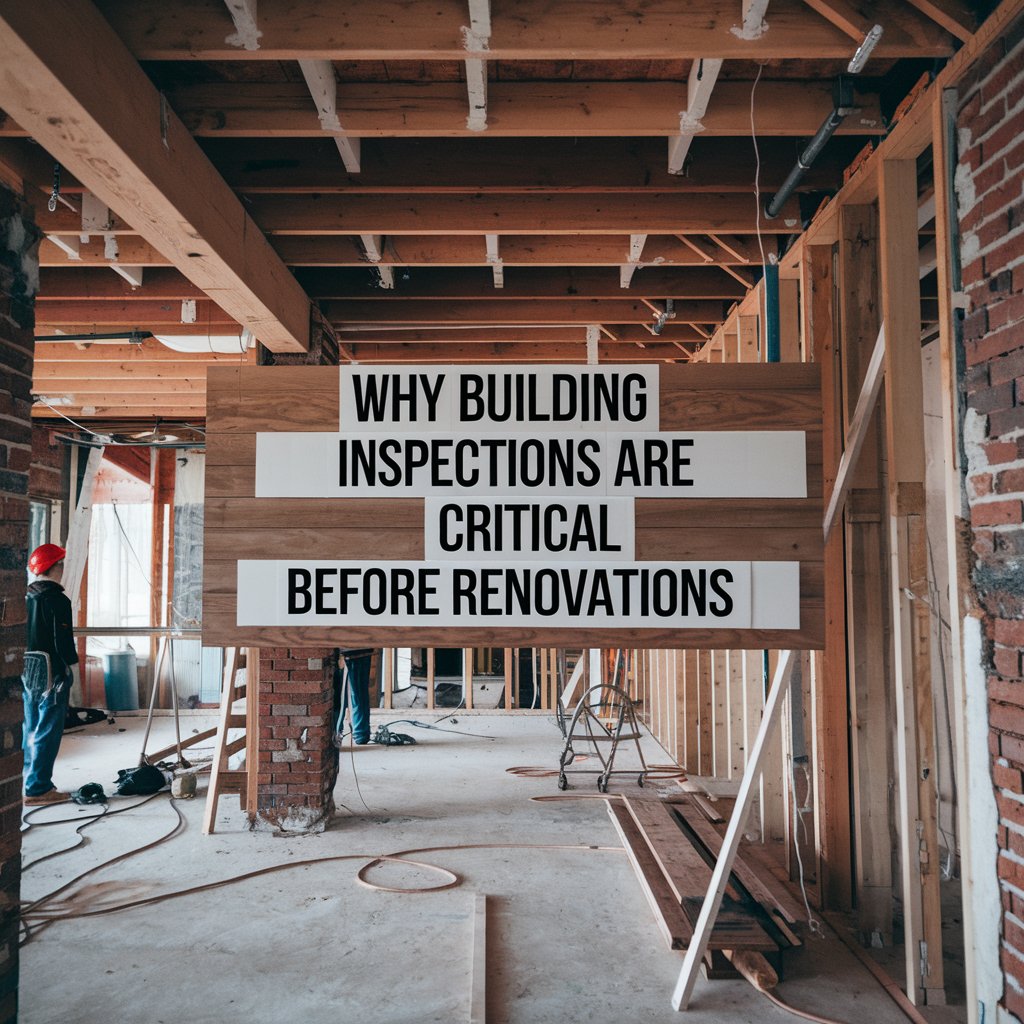Renovating a building, whether residential or commercial, is a significant investment in time, effort, and finances. However, diving into renovations without a preliminary building inspection can lead to unexpected complications, added costs, and potential safety hazards. Building inspections are essential to ensure that the existing structure is sound and safe to undergo the intended changes. Here’s why building inspections are critical before starting any renovation project.
1. Identifying Structural Integrity
The primary purpose of a building inspection is to assess the structural integrity of the property. This includes examining the foundation, load-bearing walls, and overall condition of the building to ensure it can support new construction or alterations. An inspector can identify signs of distress, such as cracks, rot, or other damage that could compromise the building’s safety. Addressing these issues before renovations begin is crucial to prevent costly repairs and potential structural failures in the future.
2. Revealing Hidden Problems
Buildings, particularly older ones, can conceal numerous issues that are not immediately obvious. These may include outdated wiring, plumbing complications, mold, asbestos, or pest infestations. A comprehensive inspection by expert building consultants can uncover such problems, allowing them to be incorporated into the renovation plan. Addressing these issues early minimizes disruptions and additional expenses during the project. For example, detecting asbestos in advance enables proper abatement procedures, safeguarding everyone involved in the renovation.
3. Ensuring Compliance with Building Codes
Building codes are designed to ensure that structures are safe and reliable. An inspector will verify that the existing building meets local building codes before renovations begin. This is crucial because non-compliance can lead to fines, legal issues, and the requirement to redo work that does not meet current standards. Additionally, building codes can change over time, and what was compliant when the building was originally constructed may no longer pass muster. This assessment prevents legal headaches and ensures that the renovated building will be fully compliant and safe.
4. Facilitating Accurate Planning and Budgeting
A thorough inspection helps in creating a more accurate plan and budget for the renovation project. By knowing the extent of the work needed, property owners and contractors can make informed decisions about materials, timelines, and labor, leading to a more streamlined and efficient project. It also reduces the likelihood of encountering unexpected issues that can cause delays and inflate costs.
5. Enhancing Property Value
From an investment perspective, a well-inspected and renovated property has a higher market value and is more attractive to potential buyers or renters. Knowing that the building has been thoroughly inspected and any necessary repairs have been made can be a strong selling point. Additionally, renovations that consider the structural and aesthetic aspects of the building tend to offer better returns on investment.
6. Ensuring Safety
Lastly, safety is the most critical aspect of building inspections before renovations. This includes not only the safety of the construction workers who will be performing the renovation but also the future occupants of the building. Structural issues, electrical faults, or toxic substances like lead paint and asbestos can pose serious health risks if not properly managed before and during the renovation process.
Conclusion
Skipping a building inspection before starting a renovation might seem like a time or cost-saving measure, but it can actually lead to far greater expenses and delays. By ensuring that a comprehensive inspection is part of the renovation planning process, property owners can safeguard their investment, comply with legal requirements, and ensure the safety and success of their renovation project. Building inspections are an indispensable step that provides peace of mind and sets the stage for a successful update to any property.






